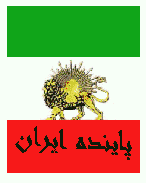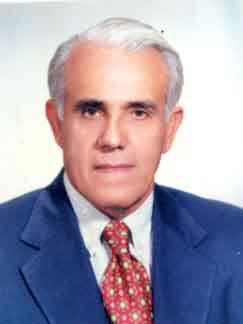A Study about the Persian Cultural Legacy and Background of the Sufi
Mystics Shams Tabrizi and Jalal al-Din Rumi
By
Dr.Ali Doustzadeh
”
If the Turk, the Roman, and the Arab are in love,
They
all know the same language, the beautiful tune of Rabab ”
Recently,
UNESCO in the year 2007 declared the Persian poet Rumi as one of the world’s
universal cultural icon. The Afghanistani, Iranian, Turkish governments all laid
claim to Rumi’s heritage and tried to maximize their association with the
Persian poet Rumi. Obviously such an association brings about a national
prestige despite the fact that Rumi is a universal figure. Also recently,
especially with the demise of the USSR, there has been an increase in
pan-Turkist nationalist activism in various Altaic-phone regions and a many
Persian cultural figures like Avicenna, Biruni, Nasir al-Din Tusi, Eyn al-Qodat
Hamadani, Bayazid Bistami, Suhrawardi, Nizami Ganjavi and etc. have been falsely
claimed to be Turkic without any serious argument. Many of these like Biruni and
Nezami lived in an era when the area they were born in was Iranian. Due to
penetration and incursions of Turkic nomads, eventually some of these Iranian
speaking regions like Khwarizmia, Arran and Sherwan, Sogdiana, Marv and etc.
became Turkified in speech the same as the Greek and Armenian languages gaveaway
to Turkic speakers in Anatolia, and Egypt gave away to Arabic. At the time of
the mentioned figures, which are claimed today for nationalistic reasons by some
of the new countries, all of these men were of Iranian ancestry but more
importantly, they all contributed to Iranian culture and have important Persian
works. Some of these extravagant claims are impossible (like Eyn ol-Qodat
Hamadani, Suhrawardi, Bistami who was of Zoroastrian descent and Nasir al-Din
Tusi) that there is no need to respond to them.
On
the other hand, figures like Nizami Ganjavi and Biruni were born in areas that
are today Turkified or Turcophone. This was not the case during the time of
these authors, but many people who study these figures do not have correct
information and background on the chronology of the linguistic Turkification in
Central Asia, Caucasus and Azerbaijan region of Iran.
For
example, during the time of Biruni, the area of Khwarizm spoke the Iranian
Chorasmian language.
I
refer to the short but very significant contribution of the late French
Orientalist to the al-Biruni Commemoration Volume published in India(L.
Massignon, “Al-Biruni et la valuer internationale de la science arabe” in
Al-Biruni Commemoration Volume, (Calcutta, 1951). pp 217-219.):
In
a celebrated preface to the book of Drugs, Biruni states:
”
And if it is true that in all nations one likes to adorn oneself by using the
language to which one has remained loyal, having become accustomed to using it
with friends and companions according to need, I must judge for myself that in
my native Chorasmian, science has as much as chance of becoming perpetuated as a
camel has of facing Ka’aba. “
Indeed
al-Biruni has recorded months and other names in the Iranian Chorasmian,
Soghdian and Dari-Persian languages and he states equivalently:
و
أما
أهل خوارزم، و إن کانوا غصنا ً من دوحة الفُرس
Translation:
And the people of Khwarizm, they are a branch of the Persian tree
(Abu
Rahyan Biruni, “Athar al-Baqqiya ‘an al-Qurun al-Xaliyyah”(Vestiges of the past
: the chronology of ancient nations), Tehran, Miras-e-Maktub, 2001)
The
late eminent philologist Professor David Mackenzie on the old Iranian Chorasmian
Language(Encyclopedia Iranica, “The Chorasmian Language”, D.N.Mackenzie)
states:
“The
earliest examples have been left by the great Chorasmian scholar Abu Rayhan
Biruni. In his works on chronology and astronomy (ca. 390-418/1000-28) he
recorded such calendrical and astronomical terms as some of the traditional
names of days, months, feasts, and signs of the zodiac.”
While
showing perfect knowledge of the native Chorasmian calendar, as well as other
Iranian calendars (Persian, Sogdian) and also Hebrew, Arabic, Greek calendars,
Biruni is clear for example that he does not other calendars(like those of the
Turks) as well:
“As
to the months of other nations, Hindus, Chinese, Tibetians, Turks, Khazars,
Ethiopians and Zangids, we do not intend, although we have managed to learn the
names of some of them, to mention them here, postponing it till a time when we
shall know them all, as it does not agree with the method which we have followed
hitherto, to connect that which is doubtful and unknown with that which is
certain and known “(Athar)
Biruni
collected the months and calendars of many nations, which are recorded in his
book.
On
the order of the old-Turkic (old Uighur, which he calls toquz-oghuz) month
names, which are just ordinals (readily recognizable in any variety) jumbled, he
adds a note that:
“I
have not been able to learn how long these months are, nor what they mean, nor
of what kind they are”(Athar, pg 83).
However,
a modern Western scholar whom we rather not name did not know about the East
Chorasmian Iranian language and just based on modern geography, has mistaken
Biruni’s Iranian Chorasmian language for Turkic. She did not for example read
about this Iranian language in the Encyclopedia of Islam, Encyclopedia Iranica,
Iranian language sources or other linguistic sources. That is sometimes
negligence of the history of the region produces mistakes and this is due to the
fact that many scholars of literature do not have a grasp of the history of the
region (Middle East, Caucasus and Central Asia) during the medieval era. So that
mentioned Western author for example mistakenly thought that the Chorasmian
Iranian language at the time of Biruni must be the same as the language spoken
in Chorasmia (in modern Uzbekistan/Turkmenistan) today.
Another
example is Avicenna. For example, Avicenna whose father was a native of Balkh
(the same place where Rumi’s father was possibly born) and his mother was from
Bukhara (her name was Sitareh which is Persian for star and even today the
majority of inhabitants of Bukhara are Iranian Persians(Tajiks)).
Avicenna
in the book of “The Healing: (Ash-Shifa) in Chapter 5 (Concerning the caliph and
Imam: the necessity of obeying them. Remarks on politics, transactions and
morals) states:
“…As
for the enemies of those who oppose his laws, the legislator must decree waging
war against them and destroying them, after calling on them to accept the truth.
Their property and women must be declared free for the spoil. For when such
property and women are not administered according to the constitution of the
virtuous city, they will not bring about the good for which the property and
women are sought. Rather, these would contribute to corruption and evil. Since
some men have to serve others, such people must be forced to serve the people of
the just city. The same applies to people not very capable of acquiring virtue.
For these are slaves by nature as, for example, the Turks and Zinjis and in
general those who do not grow up in noble climes where the condition for the
most part are such that nations of good temperament, innate intelligence and
sound minds thrive”(Chris Brown, Terry Nardin, Nicholas J. Rengger,
“International Relations in Political Thought: Texts from the Ancient Greeks to
the First World War”, Published by Cambridge University Press, 2002, pg
156-157).



